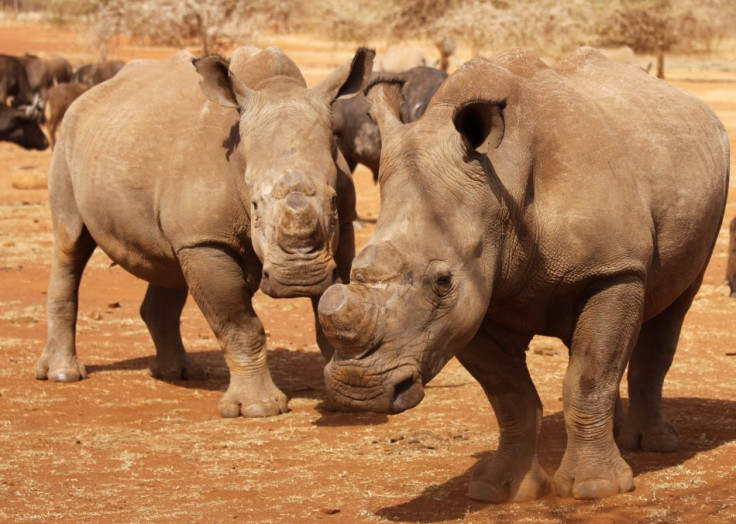Rhino Poachers Shot Dead in Kruger National Park

Two suspected rhino poachers have been shot dead by field rangers in South Africa's Kruger National Park.
An official statement confirming the incident was released by the park's general manager, Reynold Thakhuli.
"Our rangers were conducting a routine anti-poaching operation when they came across suspected poachers," he said.
"A gunfight ensued and two of them were shot dead".
There were other poachers among the group but they managed to escape. Park authorities suspect they may have fled to Mozambique, as the area where they were ambushed was near the border.
According to Thakhuli, a .375 rifle and other hunting equipment were discovered in the area. An air search was conducted to determine if any rhinos were killed.
"SANParks regrets the death of the suspected poachers but would like to request the public to assist the police and SANParks with any information which may lead to the arrest of more would-be poachers," said Thakhuli.
The deaths came after three other poachers were killed in the Pretoriuskop region.
Rangers found eight rhino carcasses with their horns missing in two sections of the park on the same day.
The Park, one of South Africa's premier tourist destinations and renowned for its variety of African wildlife, has been hit hard by poachers. In 2011, 252 rhinos were killed - more than half the annual estimated 450 rhinos killed nationwide.
South Africa has tightened security inside the park with soldiers employed to assist field rangers.
Poachers commonly use high-powered weapons and veterinary tranquilisers to dart rhinos before cutting off their horns.
Rhino poaching has been on the rise throughout Africa as the demand for the use of ivory in traditional Asian medicine and for jewellery and ornaments continues to soar.
A record number of large ivory seizures was recorded globally in 2011.
Wildlife monitoring organisation Traffic warned that the spike in ivory seizures reflects the rise in the illegal ivory trade since 2007.
Chris Shepherd, deputy director of Traffic Southeast Asia, said there was no doubt the demand for rhino horn in Asia was directly responsible for the poaching surge in Africa.
"Action, not talk, is needed. Enforcement agencies must increase their efforts now and put rhino and elephant poachers and traders behind bars."
© Copyright IBTimes 2024. All rights reserved.





